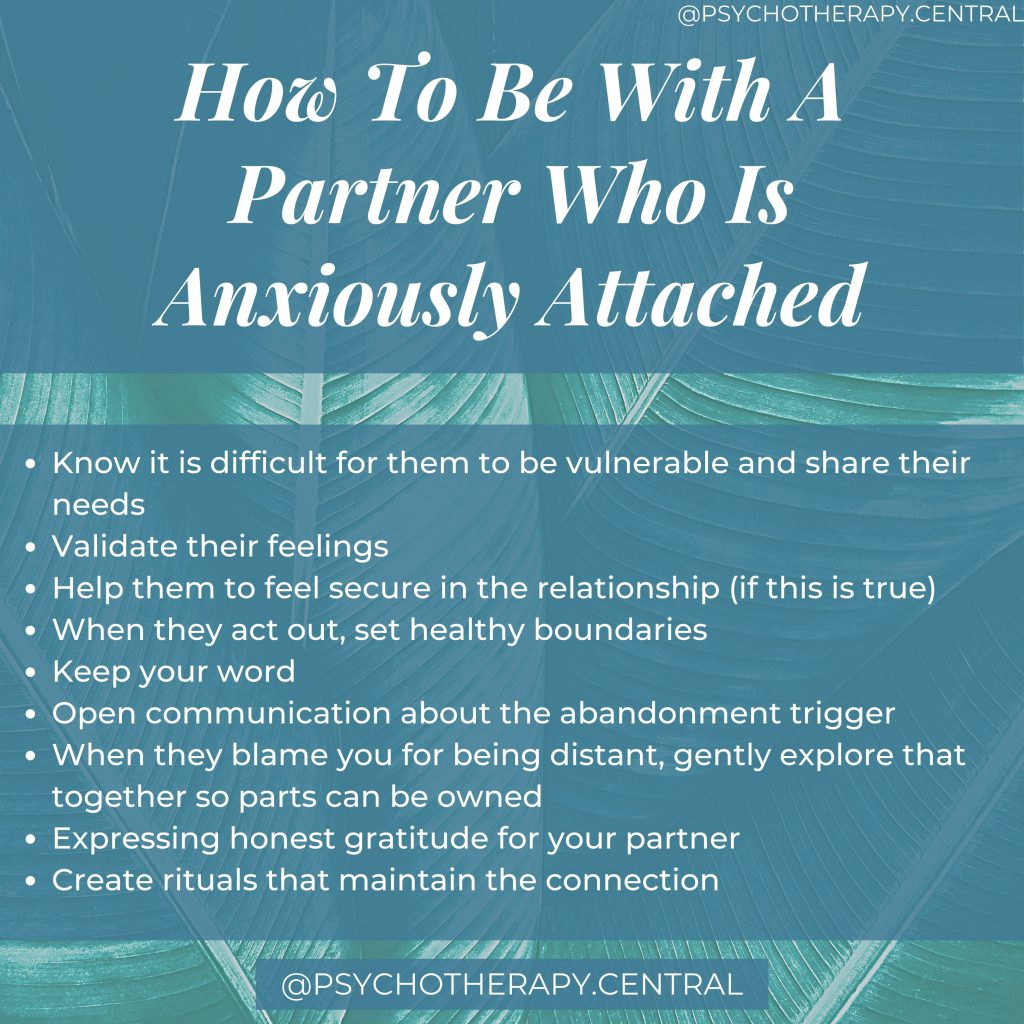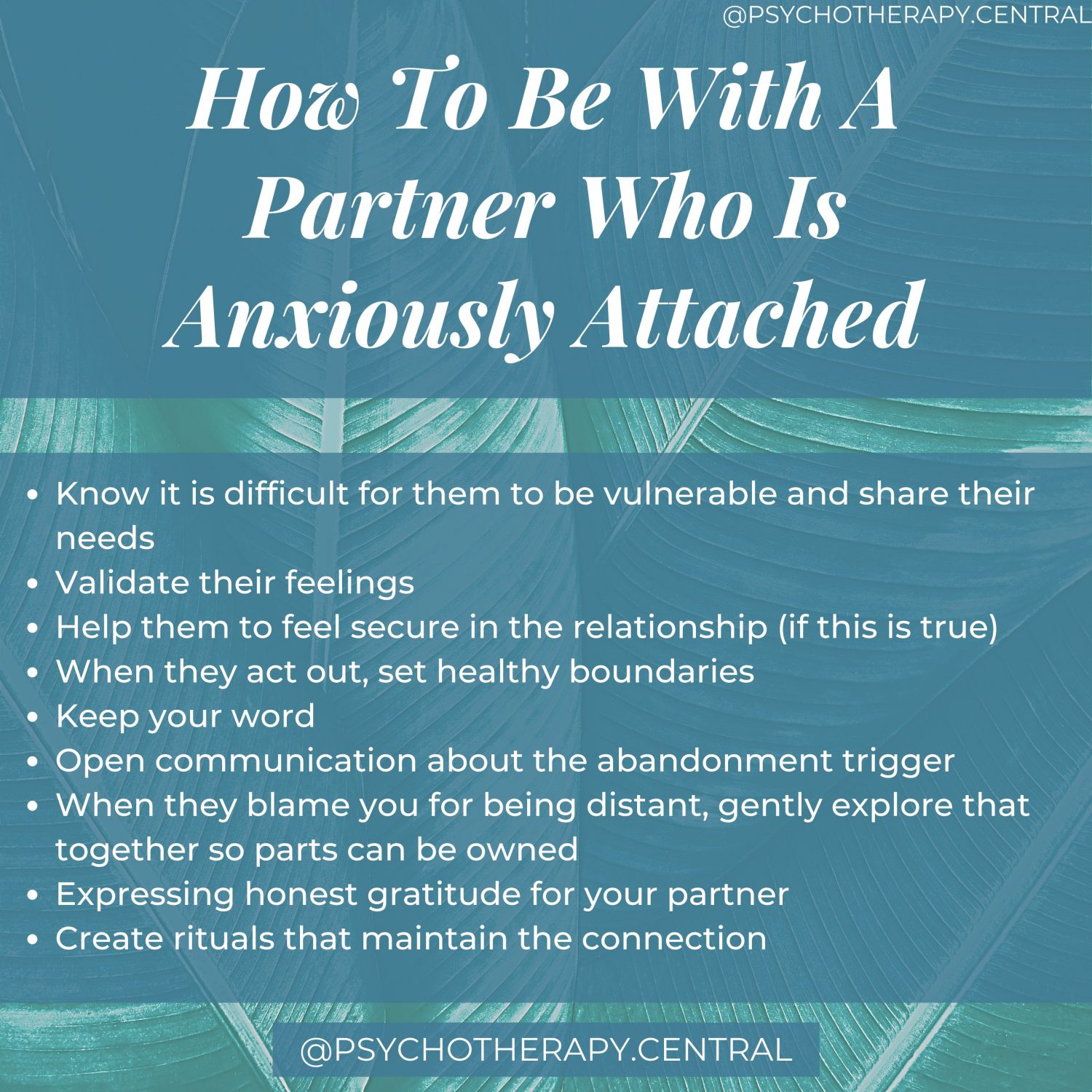Some common scenarios that come up when you are in a relationship with an anxiously attached partner:
- You have a busy day at work and couldn’t return his call and have received ten text messages which become more and more heated.
- Whatever you do, he feels that you are not giving him the attention and love that he needs, so he pulls back, ignores you or breaks up with you.
Anxiously attached people want to experience deep intimacy, but they are terrified of rejection. This resulted from growing up with a mother (or primary caregiver) who was inconsistent with their response, so the child became overly attuned to the mother and insecure.
Anxiously attached people can be very warm and loving in a relationship but can also feel suffocating. They need a high level of security and availability to be happy in any relationship.
In the early days of a relationship, as intimacy grows, the anxious person is subconsciously waiting to be rejected. They are looking out for any minor signs of not being loved. This can be pretty frustrating as the partner.
Remember that for the anxiously attached person, SAFETY is critical. So, things like checking out other men in his presence will make him feel unsafe and act out. They are also prone to jealousy because of a deep feeling of not being enough.
Inconsistent behaviour is a trigger for the anxiously attached, so being consistent in your commitment to the relationship will mean a lot. This experience of inconsistency as a child led to hypervigilance towards the mother and an over-sensitivity to the partner as an adult. If you feel a bit down, they may take it personally and wonder what they have done. Let them know it is not personal and that you care for them. Anxiously attached people need to hear this regularly. Research has recently shown that honest gratitude for your partner also decreases attachment anxiety.
The anxiously attached person has some work to do to overcome their expectations of rejection and any low self-worth. This CAN be achieved through a therapeutic process with a qualified counselor. If it can be done whilst being in a loving, supportive relationship with a partner, amazing change can occur.
The attachment styles do not have to be for life.

